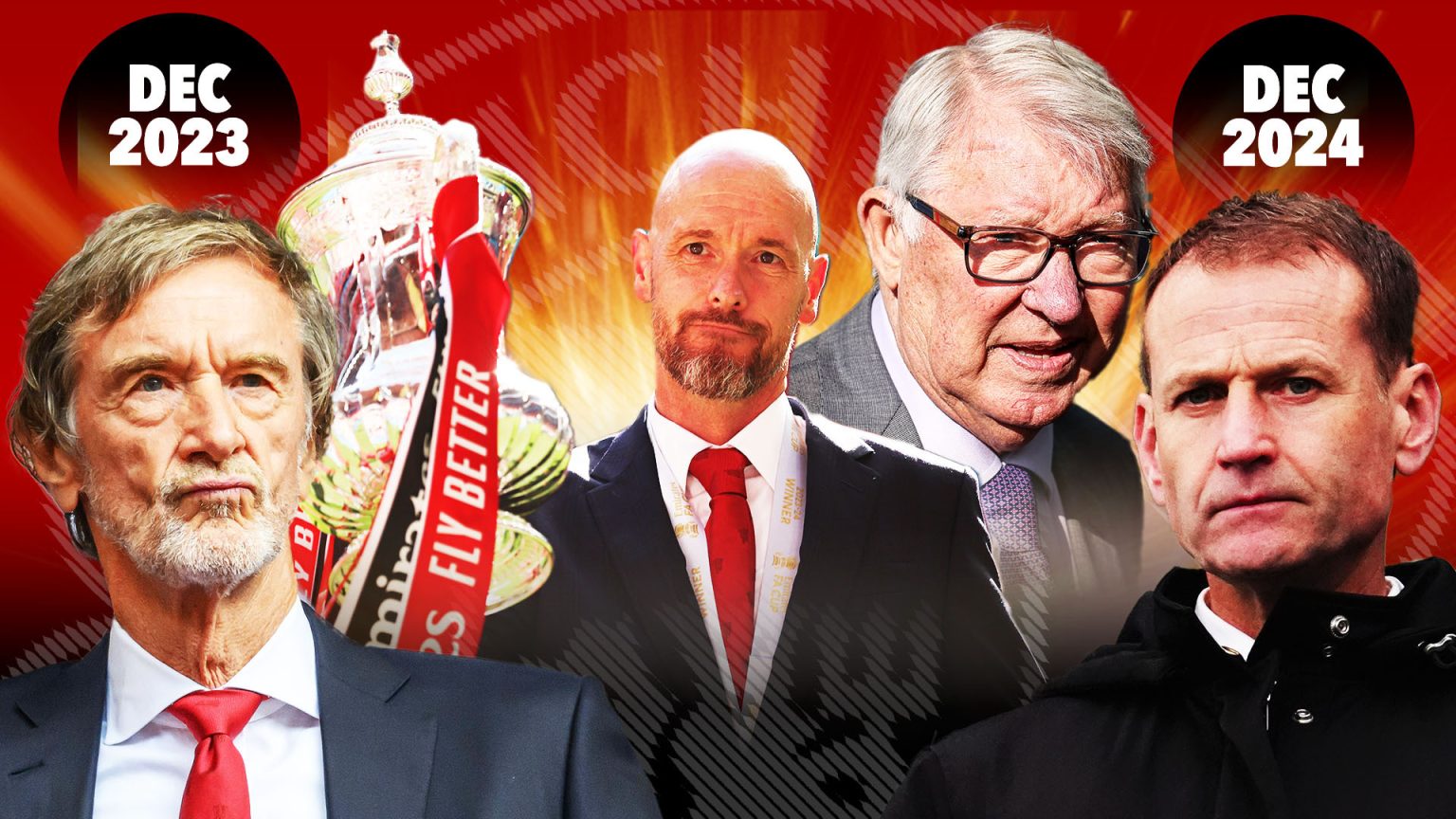Sir Jim Ratcliffe’s first year at Manchester United, which began with a Christmas Eve announcement of his minority stake acquisition in 2023, has been a whirlwind of activity, marked by both ambitious plans and controversial decisions. Initially met with widespread fan enthusiasm, fueled by Ratcliffe’s business acumen and promises of investment in Old Trafford’s infrastructure, the year unfolded with a stark contrast between expectation and reality. The on-field performance remained disappointing, culminating in the club’s worst-ever Premier League finish and a dismal Christmas standing in the subsequent season. Behind the scenes, Ratcliffe’s cost-cutting measures and management shakeups created a turbulent atmosphere, eroding staff morale and sparking fan discontent.
The early months of Ratcliffe’s tenure saw a flurry of executive changes, with CEO Richard Arnold resigning and Omar Berrada being recruited from Manchester City. Ratcliffe’s influence grew as Ineos representatives joined the board, and he unveiled his grand vision for a “Wembley of the North” to replace the aging Old Trafford. However, these positive developments were overshadowed by a declining share price and Ratcliffe’s peculiar corporate jargon crackdown. The first signs of his cost-conscious approach emerged with the cancellation of staff perks, followed by redundancies and a controversial reduction in FA Cup final benefits for employees, creating a tense environment within the club.
Ratcliffe’s focus on streamlining operations continued throughout the summer. He enforced a strict “back to work” policy, slashed staff traveling with the team on their US tour, and implemented further redundancies, affecting long-serving employees. While the club invested heavily in new players during the transfer window, these moves were juxtaposed with further cost-cutting measures impacting matchday staff. Amidst these changes, Erik ten Hag, initially on the brink of dismissal, was surprisingly offered and signed a contract extension, only to be sacked three months later due to poor league performance, costing the club a substantial payoff.
The managerial merry-go-round continued with the appointment of Ruben Amorim, accompanied by another reshuffle of the coaching staff. However, the club’s internal struggles persisted, with a blame game erupting amongst board members regarding the summer transfer activity and Ten Hag’s abrupt dismissal. Ratcliffe’s decisions began to directly impact fans as he announced plans to reduce funding for the disabled supporters association and eliminated concessions for OAPs and children while simultaneously raising the minimum ticket price. This sparked protests from supporters, further highlighting the growing discord between the new ownership and the fanbase.
As Ratcliffe’s first year neared its end, further controversies emerged. The “back to work” policy proved costly due to insufficient office space, requiring the conversion of hospitality suites. The staff Christmas party was canceled, and the traditional Christmas bonus was replaced with a significantly less valuable voucher. In a shocking move, sporting director Dan Ashworth was dismissed after just five months, drawing criticism from pundits and raising questions about the club’s direction. A dismal home defeat to Bournemouth, coupled with a leaking Old Trafford roof, provided a symbolic end to a turbulent year.
Despite increasing his stake in the club, Ratcliffe acknowledged the club’s “mediocre” performance and its outdated operations. The first year of his ownership has been marred by controversial cost-cutting measures, staff unrest, fan protests, and on-field struggles. The question now remains whether Ratcliffe can navigate the challenges and deliver the positive changes he initially promised in his second year at the helm of Manchester United. The club’s future, both on and off the pitch, hangs in the balance, with fans and pundits alike eager to see if Ratcliffe’s leadership can bring stability and success back to Old Trafford.


